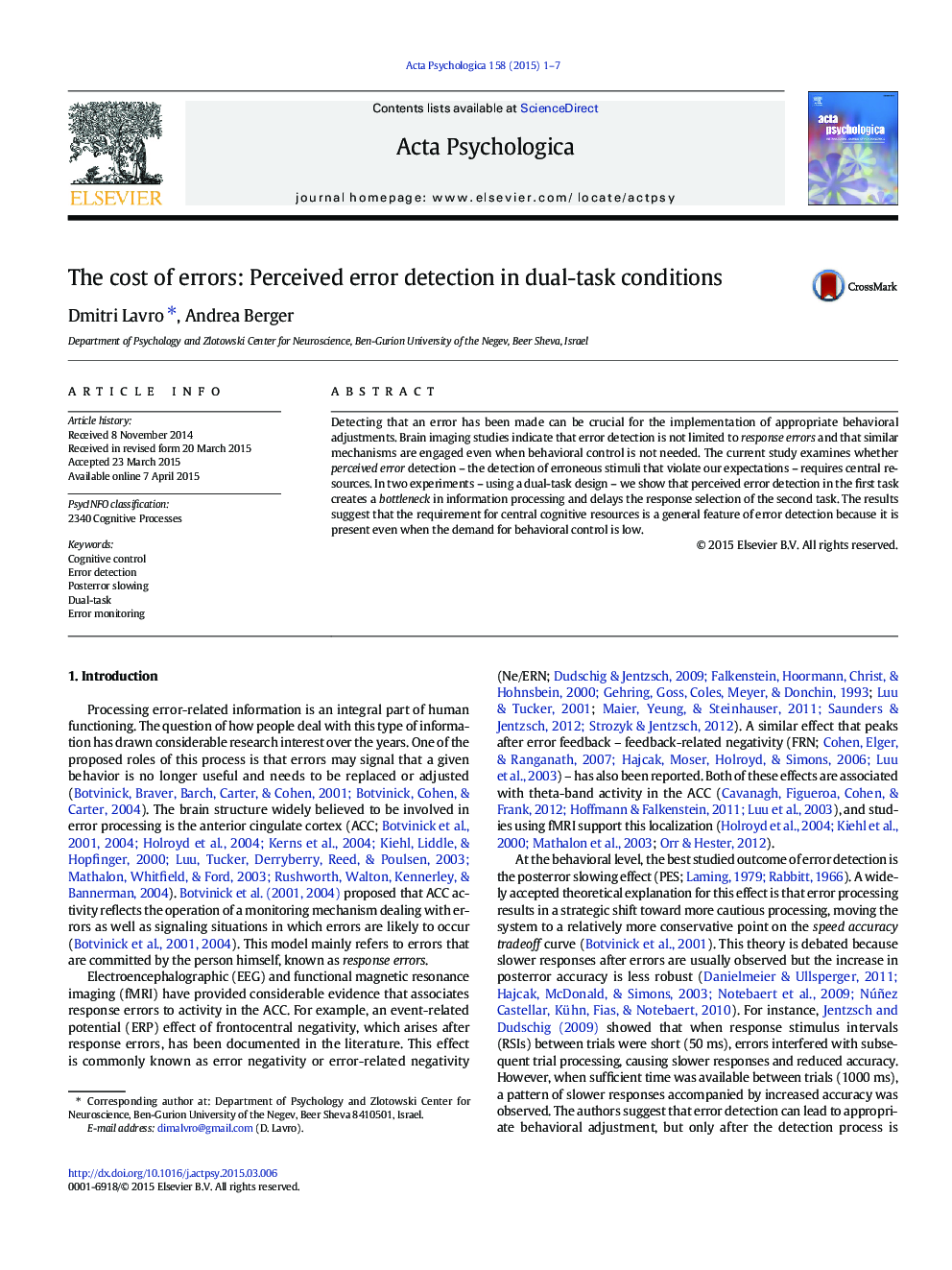| Article ID | Journal | Published Year | Pages | File Type |
|---|---|---|---|---|
| 919697 | Acta Psychologica | 2015 | 7 Pages |
•We implemented the dual task-paradigm to examine how perceived errors are processed.•Participants detect errors even when they are not related to response monitoring.•The detection of perceived errors consumes central cognitive resources.
Detecting that an error has been made can be crucial for the implementation of appropriate behavioral adjustments. Brain imaging studies indicate that error detection is not limited to response errors and that similar mechanisms are engaged even when behavioral control is not needed. The current study examines whether perceived error detection – the detection of erroneous stimuli that violate our expectations – requires central resources. In two experiments – using a dual-task design – we show that perceived error detection in the first task creates a bottleneck in information processing and delays the response selection of the second task. The results suggest that the requirement for central cognitive resources is a general feature of error detection because it is present even when the demand for behavioral control is low.
